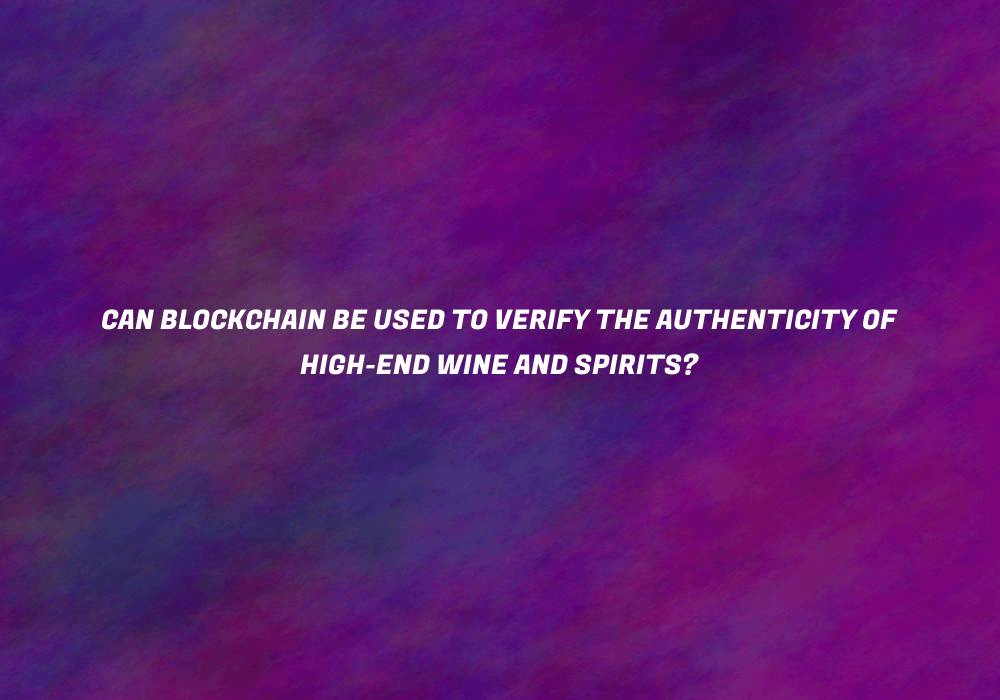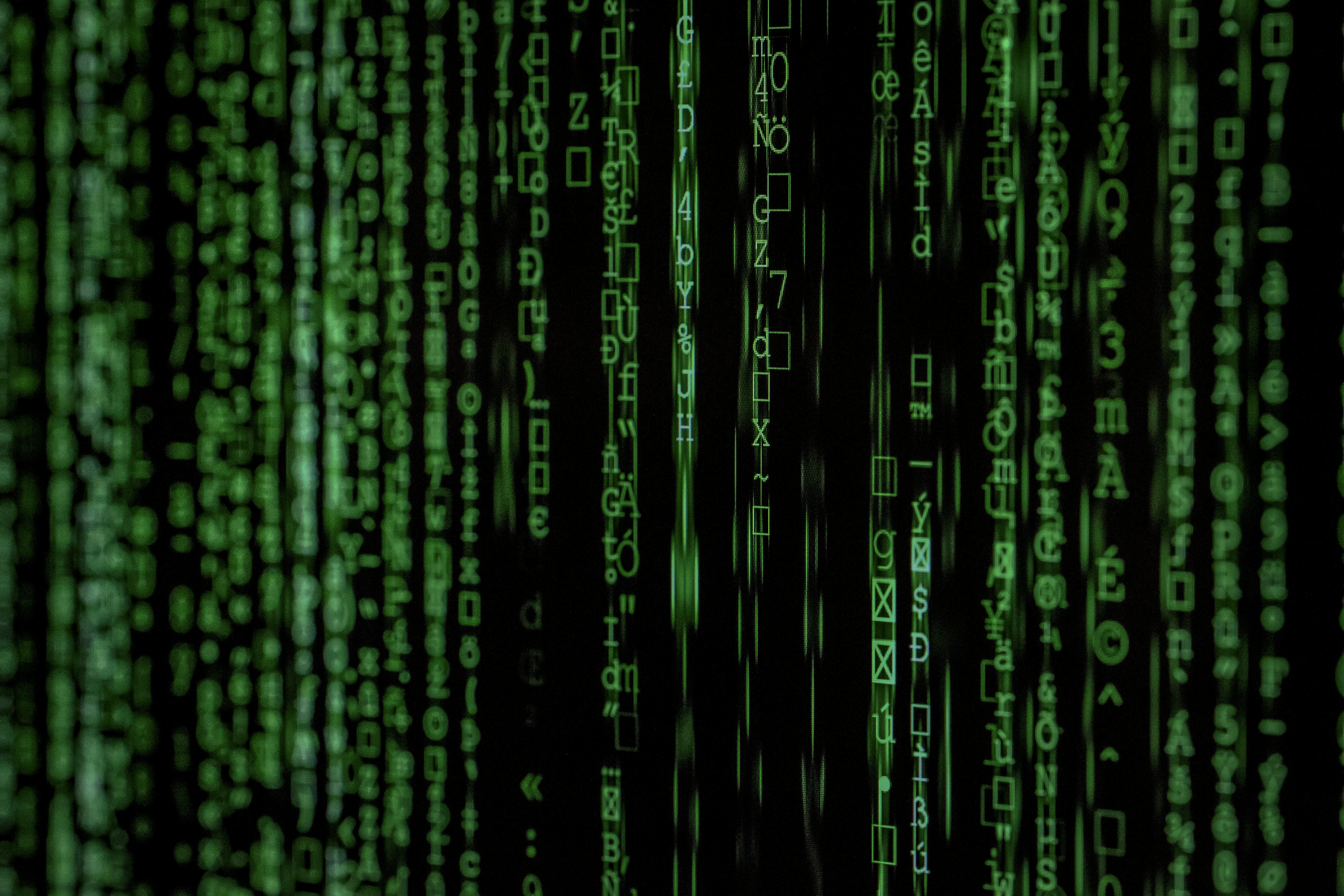Have you ever wondered if the pricy bottle of wine or spirits you just bought at the store is truly authentic? Well, there’s a new technology on the rise that might just put those doubts to rest: blockchain. This revolutionary digital ledger system has the potential to verify and track the authenticity of high-end wine and spirits like never before. By utilizing blockchain’s decentralized and immutable nature, producers, distributors, and consumers can have peace of mind knowing that each bottle’s origin, contents, and journey are recorded securely and transparently.
The Problems of Counterfeit High-end Wine and Spirits
Counterfeit high-end wine and spirits have become a major global issue that impacts not only consumers, but also the wine and spirits industry as a whole. With counterfeit alcohol on the rise, discerning between genuine products and fakes has become increasingly difficult. This not only leads to financial losses for consumers but also tarnishes the reputation of trusted brands. It is crucial for the industry to find a solution that can address this problem effectively.
The global issue of counterfeit alcohol
Counterfeit alcohol has become a widespread problem in many parts of the world. Deceptive practices by counterfeiters make it challenging for consumers to differentiate between genuine and fake products. High-end wine and spirits are particularly vulnerable to counterfeiting due to their higher value and demand from collectors and connoisseurs. The profit margins associated with counterfeit alcohol make it an attractive business for criminals.
The impact on the wine and spirits industry
The proliferation of counterfeit high-end wine and spirits has far-reaching consequences for the industry. Apart from the financial implications, it erodes the trust that consumers have in reputable brands. Counterfeit products not only undermine the quality and integrity of genuine wine and spirits but also jeopardize consumer safety. The industry needs to find a way to combat this problem to protect its reputation and the interests of consumers.
How Blockchain Technology Works
Blockchain technology is a revolutionary innovation that has the potential to address the problem of counterfeit alcohol. At its core, blockchain is a distributed ledger that stores information in a decentralized and transparent manner. It enables multiple parties to maintain a common record of transactions, making it virtually impossible to alter or tamper with the data. Blockchain technology can be used to create an immutable and transparent system for verifying the authenticity of high-end wine and spirits.
Overview of blockchain technology
Blockchain technology is based on a decentralized and distributed network of computers, known as nodes. Each node maintains a copy of the blockchain, ensuring that no single entity has control over the entire system. This decentralization makes blockchain resistant to tampering and manipulation, as any attempt to alter the data would need the consensus of the majority of nodes.
The concept of decentralization
Decentralization is one of the key features of blockchain technology. Unlike traditional centralized systems where a central authority holds control, blockchain distributes power and responsibility across a network of participants. This ensures that no single entity can dominate the network or manipulate the data. In the context of verifying the authenticity of wine and spirits, decentralization adds a layer of trust and transparency to the process.
The role of cryptography
Cryptography plays a critical role in securing data on the blockchain. Each transaction or record on the blockchain is encrypted using complex mathematical algorithms. These algorithms ensure that the data remains confidential and secure, making it extremely difficult for unauthorized parties to access or modify the information. Cryptography forms the backbone of blockchain technology and ensures the integrity and privacy of the data stored on the blockchain.
Smart contracts and their use in blockchain
Smart contracts are self-executing contracts with predefined conditions agreed upon by multiple parties. They are stored on the blockchain and automatically execute when certain conditions are met. Smart contracts eliminate the need for intermediaries and streamline processes, making them ideal for supply chain management. In the context of verifying the authenticity of high-end wine and spirits, smart contracts can be used to establish a clear set of rules and criteria for determining the genuineness of a product.
Benefits of Using Blockchain for Authenticity Verification
The implementation of blockchain technology for verifying the authenticity of high-end wine and spirits brings several benefits to the industry.
Immutability and transparency of information
One of the key benefits of using blockchain for authenticity verification is the immutability and transparency of information. Once a transaction or record is added to the blockchain, it cannot be altered or deleted. This ensures that the information regarding the origin, production, and distribution of wine and spirits remains tamper-proof and transparent. Consumers can have complete confidence in the integrity of the data stored on the blockchain, making it easier to identify counterfeit products.
Enhanced traceability and provenance
Blockchain technology enables enhanced traceability and provenance of high-end wine and spirits. Each transaction recorded on the blockchain contains a timestamp and an identification code, creating a clear audit trail from the vineyard to the consumer. This level of traceability allows consumers to verify the authenticity of the product by accessing the blockchain and tracing its journey. It ensures that consumers can have confidence in the provenance and quality of the wine or spirit they are purchasing.
Reduced risk of fraud and counterfeiting
By implementing blockchain technology for authenticity verification, the wine and spirits industry can significantly reduce the risk of fraud and counterfeiting. The transparent nature of the blockchain makes it easier to detect any suspicious or unauthorized activities within the supply chain. This real-time monitoring capability empowers industry stakeholders to take immediate action and prevent counterfeit products from entering the market. It also deters potential criminals from engaging in illegal activities, as the risk of being caught is greatly increased.
Implementation of Blockchain in the Wine and Spirits Industry
Implementing blockchain technology in the wine and spirits industry requires collaboration between industry stakeholders and integration with existing supply chain systems. Here are some key considerations for successful implementation:
Collaboration between industry stakeholders
To effectively combat counterfeit wine and spirits, collaboration between vineyards, producers, distributors, and retailers is crucial. Blockchain technology can only provide the desired results when all parties actively participate in the verification process. By working together, stakeholders can establish a common set of standards and protocols for verifying the authenticity of high-end wine and spirits.
Integration with existing supply chain systems
In order to achieve seamless integration, the blockchain solution for verifying authenticity needs to be compatible with existing supply chain systems. This ensures that the implementation process is smooth and does not disrupt the day-to-day operations of industry participants. It is important to consider the unique requirements and capabilities of each stakeholder involved in the supply chain to ensure a successful integration.
Use of unique identifiers and digital signatures
To effectively track and verify the authenticity of wine and spirits, the use of unique identifiers and digital signatures is essential. Each bottle of high-end wine or spirits can be assigned a unique digital identifier that is linked to the blockchain. This identifier stays with the product throughout its journey, allowing consumers and industry participants to easily access the blockchain and verify its authenticity. Digital signatures can also be used to ensure the integrity of the data stored on the blockchain, further enhancing the security and trustworthiness of the system.
Case Studies of Blockchain Adoption in the Industry
Several case studies demonstrate the successful adoption of blockchain technology in the wine and spirits industry. These examples highlight the potential of blockchain in addressing the problem of counterfeit high-end wine and spirits.
Walmart’s partnership with VeChain for food safety
Walmart, a global retail giant, has partnered with VeChain, a blockchain technology company, to enhance food safety and traceability. This partnership has enabled Walmart to trace the journey of fresh produce from farm to store using blockchain technology. By extending this concept to high-end wine and spirits, it is possible to create an end-to-end verification system that ensures the authenticity and quality of these products.
The Wine Traceability Platform powered by Everledger
Everledger, a blockchain technology company, has developed a Wine Traceability Platform that helps verify the provenance and authenticity of wine. This platform enables users to track the entire journey of a bottle of wine, from the vineyard to the consumer. By leveraging blockchain technology, Everledger provides a secure and transparent system for verifying the authenticity of high-end wine and combating counterfeit products.
Challenges and Limitations of Blockchain Technology
While blockchain technology offers promising solutions for verifying the authenticity of high-end wine and spirits, there are challenges and limitations that need to be considered.
Cost and scalability issues
Implementing blockchain technology can be costly, especially for small and medium-sized businesses in the wine and spirits industry. The infrastructure required to support blockchain networks and the associated maintenance costs can be prohibitive for some companies. Additionally, the scalability of blockchain remains a challenge, as the technology currently struggles to handle high transaction volumes efficiently.
Adoption barriers and industry resistance
The adoption of blockchain technology in the wine and spirits industry faces resistance from various stakeholders. Some industry participants may be reluctant to invest in new technology or change existing systems and processes. This resistance can hinder the widespread adoption of blockchain for authenticity verification, especially if there is a lack of industry-wide collaboration and standards.
Trust and reliance on technology
Successfully implementing blockchain technology for authenticity verification relies on the trust and reliance placed on the technology itself. While blockchain is known for its inherent security and tamper-proof nature, it is not immune to vulnerabilities. If consumers, industry stakeholders, and regulators do not have faith in the technology, its effectiveness in combating counterfeit high-end wine and spirits may be compromised.
Regulatory Considerations and Standardization Efforts
Government regulations and industry standards play a crucial role in facilitating the adoption of blockchain technology for verifying the authenticity of high-end wine and spirits.
Government regulations and industry standards
The wine and spirits industry operates under various government regulations and standards. It is important for regulators to recognize the potential of blockchain in combating counterfeit products and support initiatives that promote its adoption. Furthermore, industry standards and guidelines can provide a framework for implementing blockchain technology in a consistent and interoperable manner.
Collaborative initiatives for blockchain integration
Collaborative initiatives involving industry associations, technology providers, and regulatory bodies can help drive the integration of blockchain technology in the wine and spirits industry. These initiatives can facilitate the sharing of best practices, development of common standards, and provide a platform for stakeholders to collaborate and address the challenges associated with implementing blockchain-based solutions.
Potential Impacts on the Wine and Spirits Market
The adoption of blockchain technology for verifying the authenticity of high-end wine and spirits can have significant impacts on the overall market.
Building consumer trust and brand reputation
By implementing blockchain technology, the wine and spirits industry can build consumer trust and enhance brand reputation. Consumers can be assured of the authenticity and quality of the products they purchase, leading to increased confidence and loyalty towards trusted brands. This trust-building effect can help combat the proliferation of counterfeit products and ensure the long-term sustainability of the industry.
Streamlining supply chain processes
Blockchain technology enables the streamlining of supply chain processes in the wine and spirits industry. The transparency and traceability provided by blockchain can improve efficiency and reduce administrative burdens. Each stage of the supply chain, from production to distribution, can be simplified, leading to cost savings and faster response times. By eliminating unnecessary intermediaries and paperwork, blockchain enhances the overall agility and effectiveness of supply chain management.
Market differentiation and increased competitiveness
The adoption of blockchain technology can provide a competitive advantage to companies in the wine and spirits industry. By offering a transparent and tamper-proof system for verifying authenticity, companies can differentiate themselves from counterfeiters and gain a unique selling proposition. This increased differentiation can lead to a broader customer base and greater market share, further strengthening the position of legitimate high-end wine and spirits producers in the market.
Future Possibilities and Innovations
As blockchain technology continues to evolve, several possibilities and innovations could further enhance the authenticity verification process for high-end wine and spirits.
Internet of Things (IoT) integration
Integrating blockchain technology with the Internet of Things (IoT) can create a seamless and highly efficient system for verifying authenticity. IoT devices, such as smart sensors, can generate real-time data that is securely stored on the blockchain. This integration allows for the monitoring of various parameters, such as temperature and humidity, during the production and transportation of high-end wine and spirits. It ensures that the quality and integrity of the products are maintained throughout the entire supply chain.
Artificial intelligence for fraud detection
Combining blockchain technology with artificial intelligence (AI) can significantly enhance fraud detection capabilities. AI algorithms can analyze large volumes of data stored on the blockchain to identify patterns and anomalies that indicate potential fraud. This advanced fraud detection system can provide real-time alerts to industry stakeholders, enabling them to take immediate action against counterfeiters.
Blockchain-powered marketplace platforms
Blockchain-powered marketplace platforms can facilitate direct transactions between producers and consumers, ensuring the authenticity and quality of high-end wine and spirits. These platforms utilize smart contracts to establish trust and enable peer-to-peer transactions. By eliminating intermediaries, such as distributors and retailers, producers can reach a wider consumer base and provide greater value to their customers.
Conclusion
The problem of counterfeit high-end wine and spirits is a global issue that requires immediate attention. Blockchain technology offers a promising solution for verifying the authenticity of these products, ensuring consumer trust, and protecting the reputation of trusted brands. By leveraging the immutability and transparency of blockchain, the wine and spirits industry can combat counterfeiting, enhance traceability, and streamline supply chain processes.
While there are challenges and limitations associated with implementing blockchain technology, collaborative efforts, regulatory support, and industry standards can help overcome these obstacles. The potential benefits of using blockchain for authenticity verification, such as building consumer trust, streamlining supply chains, and increasing competitiveness, make it a valuable tool for the wine and spirits industry.
As blockchain technology continues to evolve, future possibilities and innovations, such as IoT integration and AI-powered fraud detection, hold even greater promise for ensuring the genuineness and quality of high-end wine and spirits. By embracing these advancements, the industry can create a more secure and transparent market for consumers and uphold the reputation of its most esteemed products.



